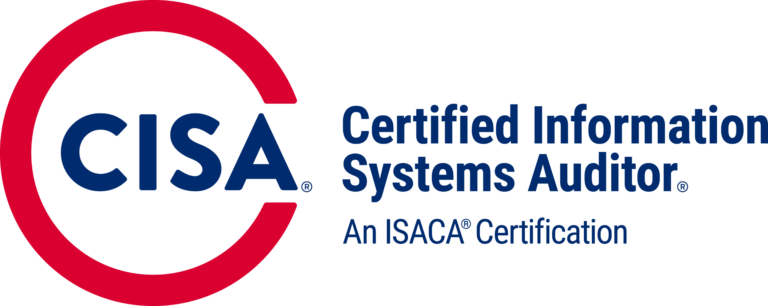Elevate Your Business with ISO 9001 Certifications
certificación iso 9001 is a critical benchmark for quality management systems worldwide. It is a globally recognized standard that sets the requirements for an effective quality management system (QMS). Organizations that achieve this certification demonstrate their commitment to consistently providing products and services that meet customer and regulatory requirements.
The Core of ISO 9001 Certification
At its core, ISO 9001 certification revolves around several fundamental principles. These include a strong focus on customer satisfaction, leadership involvement, the engagement of people, a process approach, and continuous improvement. Businesses that implement these principles can improve their operational efficiency and enhance customer trust. This certification is not industry-specific, making it relevant to organizations of any size or sector.
Why ISO 9001 is Crucial for Businesses
In today’s competitive global market, maintaining high standards of quality is essential. ISO 9001 certification provides businesses with a framework that can improve efficiency and productivity. It helps companies streamline their processes, reduce errors, and enhance customer satisfaction. Moreover, it gives businesses a competitive edge by demonstrating their commitment to quality.
For many organizations, ISO 9001 certification is a prerequisite for doing business with certain clients or entering new markets. Many industries require this certification as a minimum standard for suppliers. Therefore, achieving ISO 9001 can open up new opportunities and increase the potential for growth.
Benefits of ISO 9001 Certification
Achieving ISO 9001 certification offers numerous benefits. First, it can lead to improved customer satisfaction. The focus on customer needs ensures that businesses consistently meet or exceed expectations. Second, it can enhance operational efficiency. By standardizing processes and eliminating inefficiencies, companies can reduce costs and increase profitability. Third, it fosters a culture of continuous improvement, encouraging businesses to consistently evaluate and improve their processes.
Additionally, ISO 9001 certification can enhance a company’s reputation. Customers and partners often view certified companies as more reliable and trustworthy. This perception can lead to increased business opportunities and stronger relationships.
How ISO 9001 Certification Works
The process of obtaining ISO 9001 certification involves several key steps. Initially, a company must understand the standard’s requirements and conduct a gap analysis to identify areas that need improvement. Following this, the organization must implement the necessary changes to align with ISO 9001 standards.
Once these changes are in place, the company can undergo an internal audit to ensure compliance. If the internal audit is successful, the company can then apply for certification with an accredited third-party auditor. The auditor will assess the company’s QMS and, if it meets the necessary standards, grant ISO 9001 certification.
Maintaining ISO 9001 Certification
Achieving ISO 9001 certification is just the beginning. To maintain certification, companies must undergo regular audits and continuously monitor their processes. This ensures that they remain compliant with ISO 9001 standards and continue to improve their operations. Continuous improvement is a key element of ISO 9001, encouraging companies to regularly assess their performance and make necessary adjustments.
What is ISO 9001 Certification?
ISO 9001 certification represents a globally accepted standard for quality management systems (QMS). This certification, developed by the International Organization for Standardization (ISO), is designed to ensure that organizations consistently provide products and services that meet customer and regulatory requirements. ISO 9001 focuses on improving customer satisfaction through a well-structured quality management approach.
Significance of ISO 9001
ISO 9001 certification is crucial because it establishes a clear framework for maintaining quality across various industries. This standard helps organizations enhance their operational efficiency, reduce waste, and improve customer satisfaction. Achieving ISO 9001 certification can boost a company’s credibility, providing assurance to customers and stakeholders that the organization adheres to internationally recognized quality management practices. It also opens doors to new markets and opportunities, as many clients and partners require ISO 9001 certification as a prerequisite for business engagements.
History and Development of ISO 9001
The ISO 9001 standard has evolved significantly since its inception. The first edition, released in 1987, was designed to address quality management issues across industries. Over the years, ISO 9001 has undergone several revisions to reflect changing business practices and emerging industry needs. The 1994 version introduced a greater focus on customer satisfaction and process management. The 2000 revision further refined these elements, emphasizing the importance of aligning quality management with business strategy. The latest version, ISO 9001:2015, incorporates a risk-based thinking approach and highlights the need for leadership commitment and the integration of quality management into the overall business processes.
Core Principles of ISO 9001
ISO 9001 is built on several core principles that guide organizations towards effective quality management:
Focus on Customer Satisfaction: Central to ISO 9001 is the principle of meeting and exceeding customer expectations. Organizations must understand customer needs and strive to enhance their satisfaction by delivering consistent and high-quality products and services.
Leadership: Effective leadership is critical for implementing and maintaining a successful quality management system. ISO 9001 emphasizes the role of top management in establishing a clear vision, setting quality objectives, and creating a culture that supports quality improvement.
Continual Improvement: ISO 9001 encourages organizations to adopt a proactive approach to improvement. This involves regularly reviewing and refining processes, seeking feedback, and making necessary adjustments to enhance overall performance and effectiveness.
Process Approach: The standard advocates for a process-based approach to quality management. This means organizations should manage and control interrelated processes to achieve desired outcomes efficiently and consistently.
Engagement of People: Involving employees at all levels is essential for effective quality management. ISO 9001 highlights the importance of engaging staff, providing training, and fostering an environment where everyone is committed to quality.
Evidence-Based Decision Making: Making decisions based on data and evidence is a key principle of ISO 9001. Organizations are encouraged to use accurate and relevant data to inform their decisions, ensuring that actions are well-founded and targeted towards achieving quality objectives.
Relationship Management: Building and maintaining positive relationships with suppliers and other stakeholders is also emphasized. Effective relationship management can enhance supply chain performance and contribute to overall quality improvements.
ISO 9001 certification provides a structured approach to quality management, helping organizations deliver consistent value to customers and stay competitive in the global market. By adhering to its principles and continuously improving their practices, businesses can achieve lasting success and build a solid reputation for quality.
Conclusion
certificación iso 9001 is more than just a standard; it’s a powerful tool for enhancing quality, efficiency, and customer satisfaction. For businesses worldwide, it offers a structured approach to managing quality that can lead to significant competitive advantages. Whether your business is looking to improve operations, increase customer satisfaction, or expand into new markets, ISO 9001 certification can be a crucial step towards achieving these goals.
By implementing the principles of ISO 9001 and maintaining certification, companies can ensure that they meet the highest standards of quality, both now and in the future.






